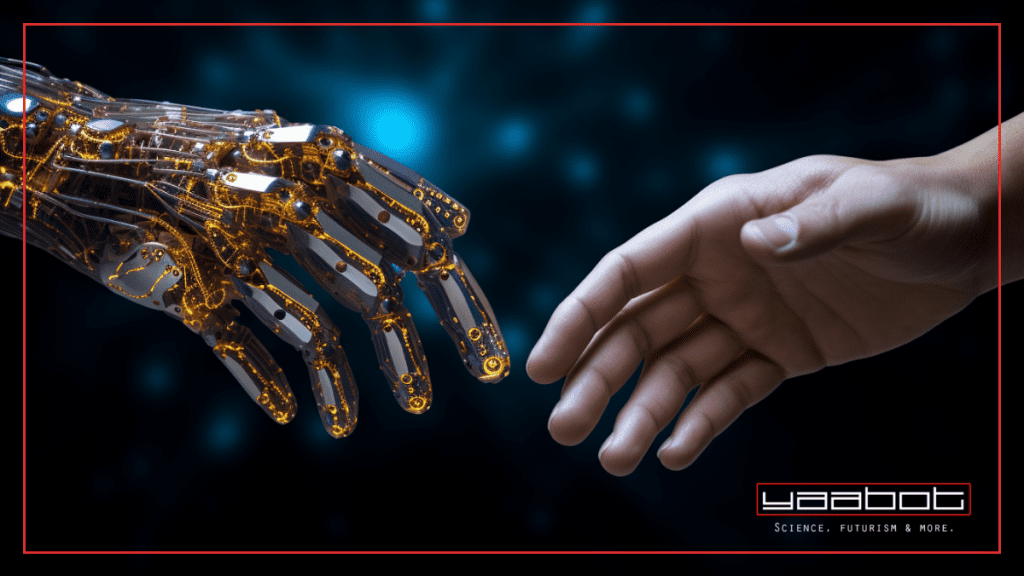A fascinating aspect of the ongoing AI revolution is the concept of cognitive computing, which aims to bring together the power of AI and human intelligence collaboratively. In this post, we will find out about the evolution of cognitive computing, the role of AI and human intelligence, the potential for collaboration, and the ethical considerations that arise in this exciting field.
It is important to delve into its evolution to understand how cognitive computing works.
Understanding Cognitive Computers
AI development has progressed over decades, from rule-based and expert systems to more recent advancements in machine learning and deep learning. Cognitive computing represents a paradigm shift by focusing on emulating human-like intelligence (powered by computational cognitive neuroscience) and understanding rather than mere data processing.
Cognitive computing encompasses systems that can understand, learn, and reason like humans. It credits machine learning algorithms and natural language processing to interpret and analyze vast amounts of data, enabling it to make informed decisions and provide intelligent insights.
Unlike traditional computing systems that follow pre-programmed rules, cognitive computers adapt and evolve based on experience, enhancing problem-solving abilities.
What is Augmented Intelligence?
Augmented intelligence, a symbiotic amalgamation of human expertise and advanced technologies, is revolutionizing the way we approach complex tasks. Unlike artificial intelligence aiming to replace humans, augmented intelligence seeks to enhance human capabilities. By leveraging machine learning, data analytics, and natural language processing, augmented intelligence empowers individuals to make more informed decisions and solve intricate problems.
This technology, based on computational cognitive neuroscience, assists professionals across diverse fields. There’s cognitive computing in healthcare and finance to manufacturing and research. It provides actionable insights by sifting through vast amounts of data swiftly and accurately, aiding in uncovering patterns and trends that might elude human cognition alone.
As we embrace augmented intelligence, we open doors to innovative solutions, improved efficiency, and novel perspectives, ultimately propelling us into an era where human ingenuity collaborates harmoniously with cutting-edge tools.
Why Retain Human Intelligence At All?
Human intelligence possesses unique qualities that set it apart from AI, and at least for now, seem to have indispensable value.
Emotional intelligence, creativity, and given the ability to think critically and make intuitive leaps are some of the defining characteristics of human intelligence. These attributes allow humans to approach problems from different perspectives, consider ethical implications, and make decisions based on nuanced factors. Human intelligence has significantly contributed to fields such as medicine, art, and scientific research.
What is the Goal of Cognitive Computing? Enhancing Human Capabilities through AI
Rather than replacing human intelligence, AI has the potential to augment and enhance human capabilities. Known as augmented intelligence, this collaborative approach leverages AI technologies to support decision-making and problem-solving.
AI can process huge amounts of data, identify patterns, and provide insights humans may overlook through augmented intelligence with the help of machine learning. By working in tandem, humans and AI can achieve greater efficiency and effectiveness in various domains, from healthcare and finance to customer service and creative endeavors.
Collaborative Decision-Making: AI and Humans in Sync
The collaboration between AI and human intelligence holds immense promise, particularly in decision-making processes. When humans and AI work together, they can complement each other’s strengths and weaknesses.
Real-world examples, such as autonomous vehicles with human oversight and AI-powered medical diagnostic systems assisting doctors, demonstrate the potential of collaborative decision-making. Combining human judgment, empathy, and creativity with AI’s analytical capabilities enables us to arrive at more informed and well-rounded decisions.
Ethical Considerations in Cognitive Computing
While the prospects of cognitive computers are exciting, ethical considerations must be addressed. AI systems must be transparent, accountable, and unbiased to ensure fair and just outcomes. The responsibility lies in developing robust ethical frameworks, following privacy and data protection regulations, and promoting diversity and inclusion in AI development.
Striking a balance between AI advancements and ethical principles is crucial to prevent unintended consequences and promote society’s overall well-being.
Ethical considerations in cognitive computing will become even more critical as technology becomes more intertwined with human decision-making. Addressing issues like privacy, bias, and accountability ensures that these powerful systems benefit society without infringing on rights or perpetuating discrimination. Striking this balance is crucial for responsible and trustworthy cognitive computing advancement.
The Future of The Cognitive Computing Market
Looking ahead, cognitive computing is poised to continue its transformative journey. As AI technologies advance, we can expect cognitive systems, and the goals of cognitive computing itself, to become more sophisticated, capable of understanding complex human emotions and making context-aware decisions. With cognitive computing in healthcare, finance, education, and entertainment – all these industries likely witness substantial changes. The future holds the potential for remarkable breakthroughs and unprecedented human-AI symbiosis.
The bottom line is – cognitive computers are a groundbreaking approach to bridging the gap between AI and human intelligence. With it, we can harness the strengths of AI and human intelligence to solve complex problems, make better decisions, and unlock new frontiers of knowledge using machine learning algorithms.
However, this path must be carefully considered for its ethical implications and societal impact. With responsible development and integration of cognitive computers, we can shape a future where humans and AI create a better world.
